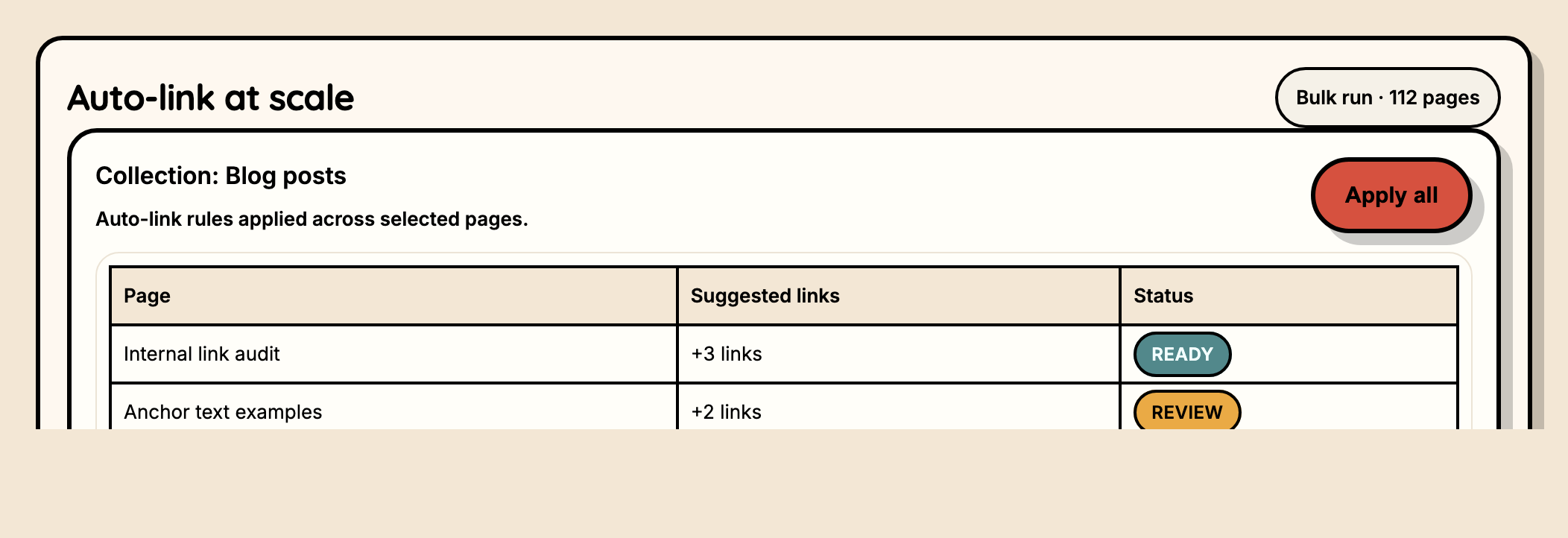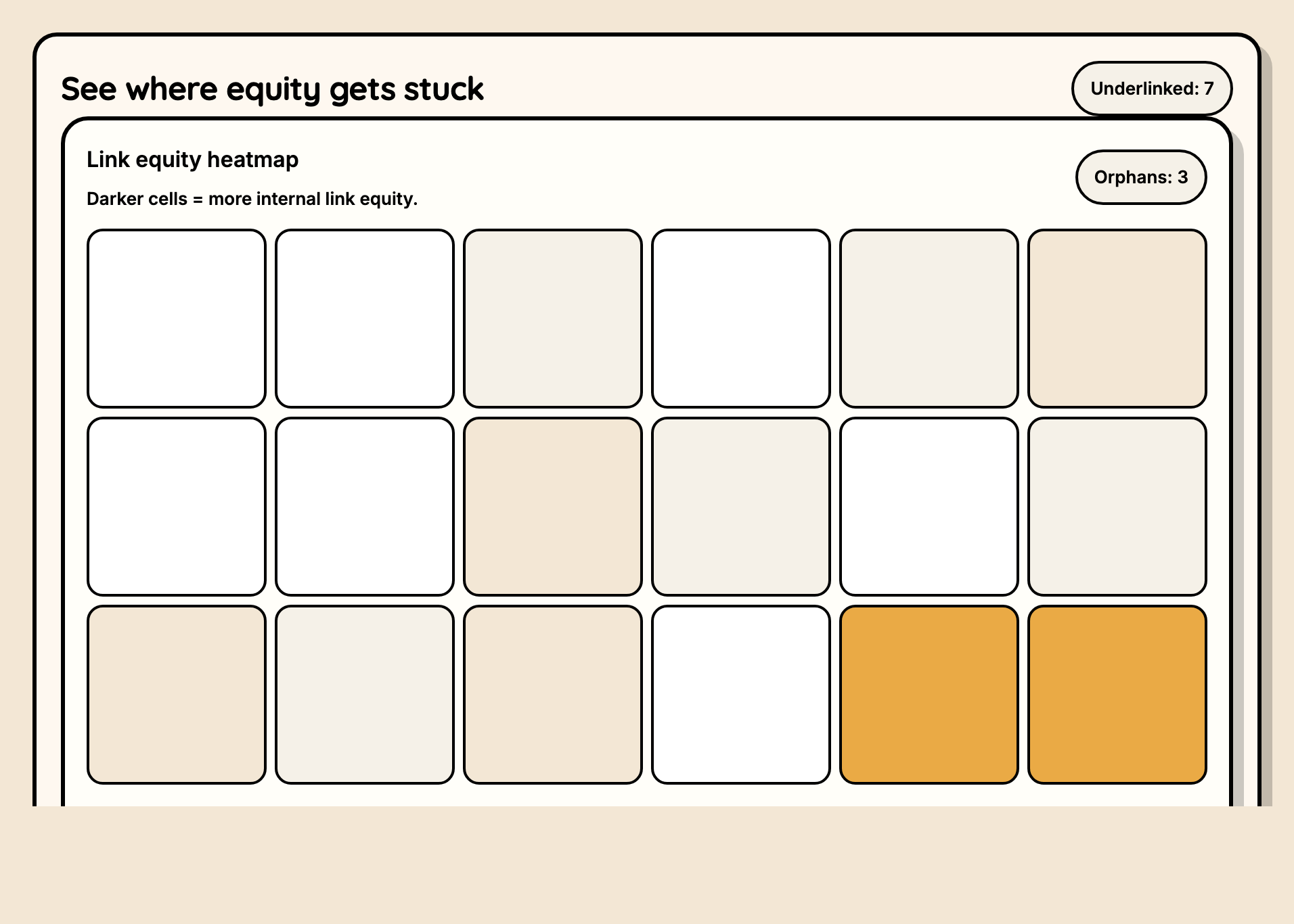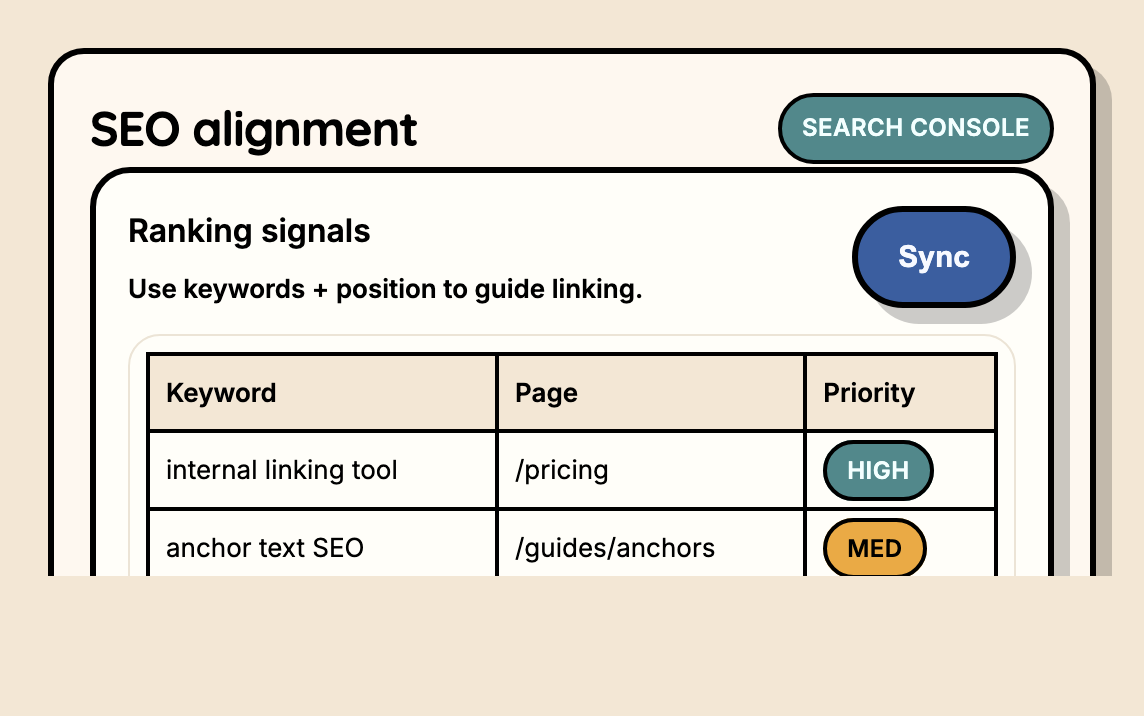Auto-link at scale

- Bulk internal linking across collections
- AI suggestions with intent-aware anchors
Cut internal linking time by 80% with AI suggestions, anchor guidance, and link equity insights.
For Webflow marketers, SEO leads, and agencies managing content sites.





Nothing publishes without your approval. You review suggested links before they go live.
Yes—preview changes and approve link-by-link or in bulk.
That’s the goal: collections-first workflows for content-heavy sites.
Anchor guidance focuses on variety and intent so your internal links stay natural.
Pricing will be announced before launch. Waitlist members get founding pricing.
First 200 get founding pricing.